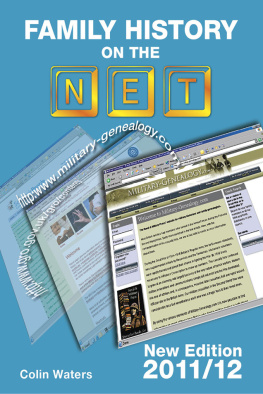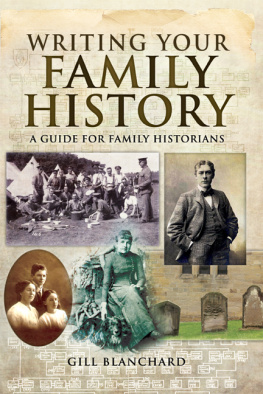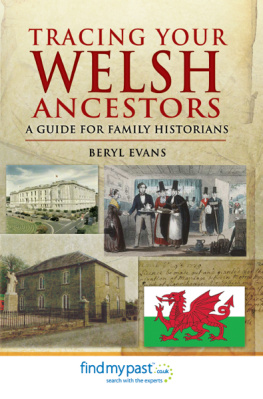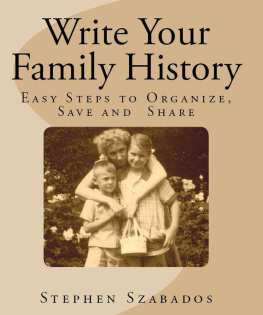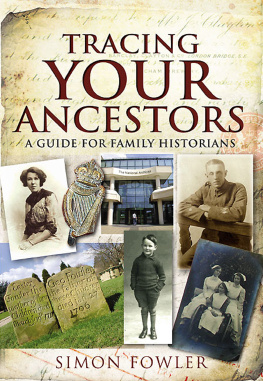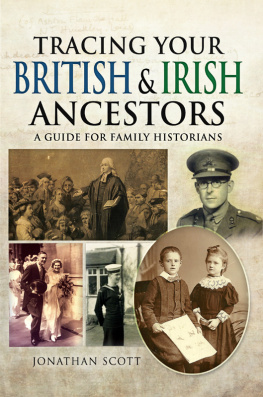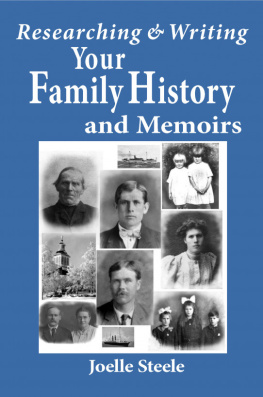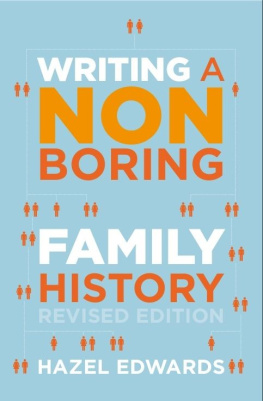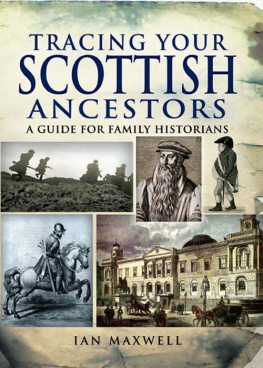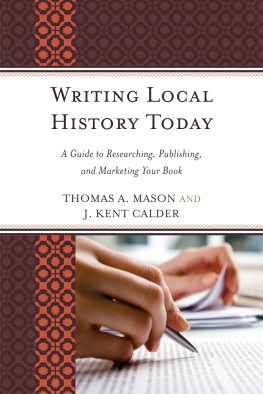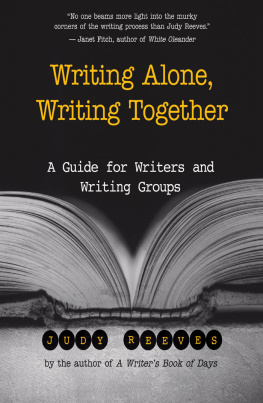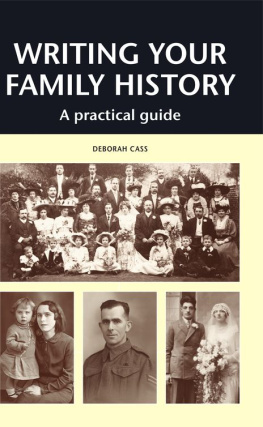Title Page
WRITING UP YOUR FAMILY HISTORY
A do-it-yourself guide
By
John Titford
Publisher Information
First published 1996 in conjunction with the Federation of Family History Societies as Writing and Publishing Your Family History Second edition 2003 John Titford 1996, 2003
Reprinted 2005, 2009
Publisher in 2011 by Countryside Books 3 Catherine Road Newbury, Berkshire
www.countrysidebooks.co.uk
Digital Edition converted and distributed in 2011 by
Andrews UK Limited
www.andrewsuk.com
All rights reserved. No reproduction permitted without the prior permission of the publisher
Cover design by Peter Davies, Nautilus Design
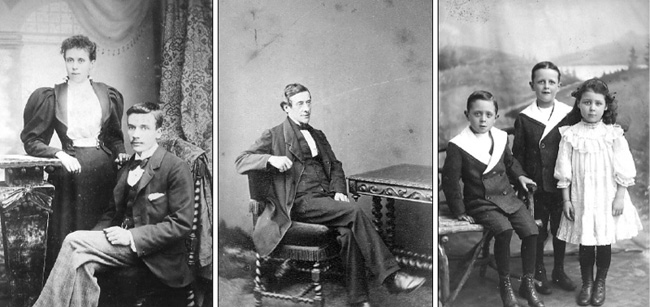
Do you have a shoebox full of old photographs? (Left) Arthur and Annie Buckler, the authors maternal grandparents on the day of their wedding, 1897. (Middle) Benjamin Titford, silversmith and pawnbroker, poses for a photograph in the studio of Lock and Whitfield, Regent Street; he was born in 1814, before the Battle of Waterloo; (Right) Harry, Sidney and Doris Titford, the three children of Henry James and Margaret Titford of North London, photographed in about 1912.
Why Write a Family History?
Why would anyone in his or her right mind want to write a family history, let alone publish it? I ought to be dissuading you from doing any such thing. It will cost you a great deal of effort, and could prove very tiring; it could be an expensive undertaking if you want it to be; it could put strains on your relationship with your nearest and dearest; you might not even be happy with the final product once youve brought it to completion. Have I dissuaded you? In a world which often seems to be aware of the price of everything and the value of nothing, you might think that only people who really are out of their minds would embark on such an enterprise.
And yet people do it - regularly, and in increasingly large numbers. Why? Here comes the good news. Writing your family history could be one of the most rewarding things you ever do -with rewards measured in terms of personal satisfaction, not financial gain. You may soon discover that theres a book or a series of short articles inside you just bursting to get out; with luck youll tap the deepest springs of your creativity and give the lie to those teachers at school who gave you low marks for English composition. Youll give pleasure to members of your immediate family, and your name and the work youve done could well be featured on the Internet, with the result - if youre lucky - that distant cousins you never knew you had will contact you from all over the globe in gratitude and astonishment at your achievement, be it ever so modest. Perhaps most important of all, youll feel that youve paid an appropriate and lasting tribute to your ancestors, those individuals who have long since departed this mortal life but have helped to make you what you are. How could you not write a family history?
Seize the Day
Carpe diem - that is, seize the day, grab the opportunity while you can - could well stand as our text for this book. Without being too morbid about it, we could say that what you intend to do in life, you should start doing today - since none of us has an infinite number of tomorrows.
I can still vividly recall a conversation which took place a few years ago on a plane which was carrying a group of English family historians to Salt Lake City, where we were to take part in a study tour organised by Family Tree magazine. Two friends of mine from the group were deep in conversation with a couple of charming ladies from the Church of Jesus Christ of Latter-day Saints. The ladies were intrigued, and quizzed my friends as to their intentions: Why are you visiting Salt Lake City?; To collect information about our ancestors; Oh! And what will you do with it all once you get it? Were Mormons, and family history information is of great importance to us, so we know exactly what we do with it - but what about you?
This, then, is my question, too. Youve collected lots of information about your family. Now what will you do with it all?
An Exhortation
My exhortation to you is this: do think seriously about writing your own family history, and do think about writing it right now. You could make a lot of people - including yourself - very happy and fulfilled in the process. As family historians we are in the posterity business - we thrive on what others have left behind. We probably read enough wills to know that you dont really own anything in this life; whatever you have is yours in trust for the duration of this life, and then passes to someone else after youve gone. What will you leave behind for posterity? Will it be a family history that might be read and enjoyed by others for many years to come? I do hope so.
There are several ways of publishing information about your family which others can read and enjoy. You may like the idea of a regular family journal or news-sheet, and you could even issue a substantial family history in parts over a period of time. Here Im going to assume that youd like to aim at something even more substantial - a full-length family history, published as a book. If your preferred option is to publish on the Internet, Ill have a few words to say about that, too.
One of the most enthralling aspects of writing a family history is the way in which its possible to breathe new life back into your ancestors. So a real event which happened in the past - a marriage, for example - might be recorded on a sheet of paper or parchment; from that written record its possible to re-create the original event in your imagination. Put your imaginative picture into words in a family history, and youve given your ancestors that most precious of gifts, the one that men and women have sought for thousands of years - a touch of immortality. Its worth the effort, believe me!
There are probably as many different approaches to family history as there are family historians. Some love to collect information and tuck it away like squirrels hoarding nuts; others are only happy when the genealogical programme on the computer is in full swing; others like to spend time quietly contemplating the past and the people who have inhabited it. If you pay a visit to the library of the Society of Genealogists, in London, indulge in a spot of people-watching. Most varieties of family historian are there - from the frenetic gleaner of information, high on nervous tension and rushing around as much as its possible to rush in such an environment, to the slow reader who seems to be in danger of falling asleep at any moment.
Collecting information - data, if you prefer - about your family is what I think of as high-octane work. As you scan the pages of a parish register or skim through the wording of a will, the engines are iring on all cylinders. It can be exciting and stimulating -which is why so many family historians come back for more, addicted to the adrenal flow of it all.
By contrast, it looks as if the act of disciplining yourself to write down your findings in an ordered way, as a family narrative, might be far less rewarding - boring, even. Not a bit of it! Ill run the risk of being thought rather prescriptive here, and say that if you have only collected data about your family (ancestor spotting, we may call it) and stored the information away safely somewhere, youve only done half a job - or less.
Advertisements in family history journals which make proud announcements such as Bloggs family: 65,000 references on a database both impress and depress me all at the same time. Surely there is more to family history than this? You have 65,000 references? Wonderful! Now what will you do with all that information?
Next page
